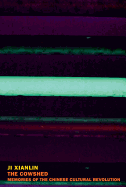
Ji Xianlin was one of many Chinese intellectuals held in makeshift prisons, called cowsheds, on university campuses during China's Cultural Revolution, which began in 1966 and lasted for 10 years. He was mocked, humiliated, beaten and starved. He wrote about these experiences only reluctantly, observing late in life that none of his fellows had done so and that younger Chinese need to know their history in order to learn from it. In 1998, he released his memoir, now translated into English for the first time as The Cowshed: Memories of the Chinese Cultural Revolution.
Ji narrates his years of torment compellingly, in remarkably fair-minded fashion. He claims that his work is not literary, but it is adorned with lovely metaphors: he compares his torture to Indian and Chinese concepts of hell, "a veritable pagoda of horrors," and makes reference to the steep path to Mount Tai, one of five Taoist sacred mountains.
Ji's story is painfully moving and beautifully related, elevated by his preface and journalist Zha Jianying's introduction, and his appendix, an abbreviated memoir of Ji's whole life that puts the bulk of The Cowshed into perspective. He ponders the question of human nature as basically good or bad, and illuminates Chinese culture with sensitivity and humor; for example, "We Chinese intellectuals are descended from a tradition of scholars who would rather be killed than humiliated." Until his death in Beijing in 2009, the wise older man who wrote this book remained a patriot who wanted the best for China and who appreciated that he saw the Cultural Revolution so intimately, if only so that he could bear witness. --Julia Jenkins, librarian and blogger at pagesofjulia

